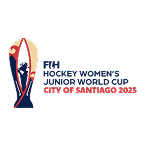
The good news is that FIH is recognised by the World Anti Doping Agency (WADA) as one of the top sporting Federations when it comes to anti-doping education and prevention. The not unsurprising news is that the FIH team behind anti-doping wants to keep it that way.
“We are in a very good position as we have very few adverse analytical findings, with just a handful of positive tests over many, many years,” says Jon Wyatt, FIH Sport Director. “We want keep the barriers as high as we possibly can and make sure that the deterrents are greater than the incentives to cheat.”
The advent of the high profile FIH Pro League, and continual drive to keep hockey clean, has driven an evolution in the FIH anti-doping programme. With the Pro League comes prize money and enhanced public profiles for hockey’s top athletes. Wyatt and his team are aware of this increased incentive for results and performances, so they have been working with WADA on ways to continually improve the way things are done.
The introduction of these improvements coincide with WADA’s Play True Day on 10 April, which aims to raise awareness of the importance of clean sport among athletes and sports fans across the world.
WADA’s Director General Olivier Niggli said: “I wish to acknowledge and thank the FIH for participating in Play True Day. Every year, more countries and sports organizations join the campaign and are helping to turn Play True Day into a truly global event! This worldwide momentum shows how together, we can create a world where the clean athlete prevails and where athletes choose to stay clean out of self-respect, fairness to their fellow competitors, and for the pure joy that sport brings.”
One thing that won’t change is the highly commended athlete education system. It is a mandatory requirement that every athlete that participates in an FIH event completes an online anti-doping module devised by WADA. Prior to each event, the athletes and team managers have to confirm they have completed the module within the past two years.
The big changes, being implemented now, are around the frequency of testing and the way out-of-competition testing is carried out.
“This year, we are increasing the number of in-competition tests by more than 50 per cent” explains Wyatt.
"I wish to acknowledge and thank the FIH for participating in Play True Day. Every year, more countries and sports organizations join the campaign and are helping to turn Play True Day into a truly global event!"
- Olivier Niggli, Director General, WADA
And because the Pro League covers a six month period, the window during which athletes can be tested is significantly greater than in previous years. Testing at competitions such as a World Cup or Champions Trophy took place over a two week period, whereas now the athletes playing in the Pro League can be tested at any point between January and June.
The out of competition programme is also being improved, with the previous Registered Testing Pool programme (originally devised for individual sports) now being replaced by a more appropriate Team Testing protocol. This has the benefit of not only focussing on targeted individuals within a team, but this new protocol also raises the deterrent for all national squad athletes as any of them can be tested out of competition throughout the year.
Under the new WADA-approved procedure, the responsibility for providing whereabouts information for national squads will now lie with the team managers and NADO officers can be sent to test athletes within a squad at any time.
In one further move designed to demonstrate to athletes and the wider community how much effort goes into ensuring hockey remains a clean sport, there will be face to face anti-doping education delivered at a number of FIH events in 2019. At the FIH Series Finals in Malaysia and Japan, FIH and the local NADO (National Anti-Doping Organisation) will be hosting an education booth for athletes to ask questions about anti-doping procedures. Then at the FIH Pro League Grand Final in the Netherlands at the end of June, there will be an information booth to demonstrate the athlete anti-doping education programme to the public. Quizzes, games and activities will be used to engage with hockey fans and explain anti-doping procedures.
As Wyatt says: “We are proud of our position as one of the top federations for anti-doping and we want to remain at the top when it comes to being a clean sport.”
#PlayTrueDay

























